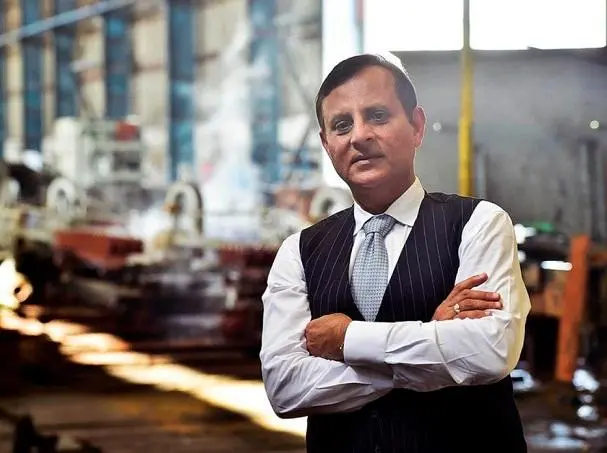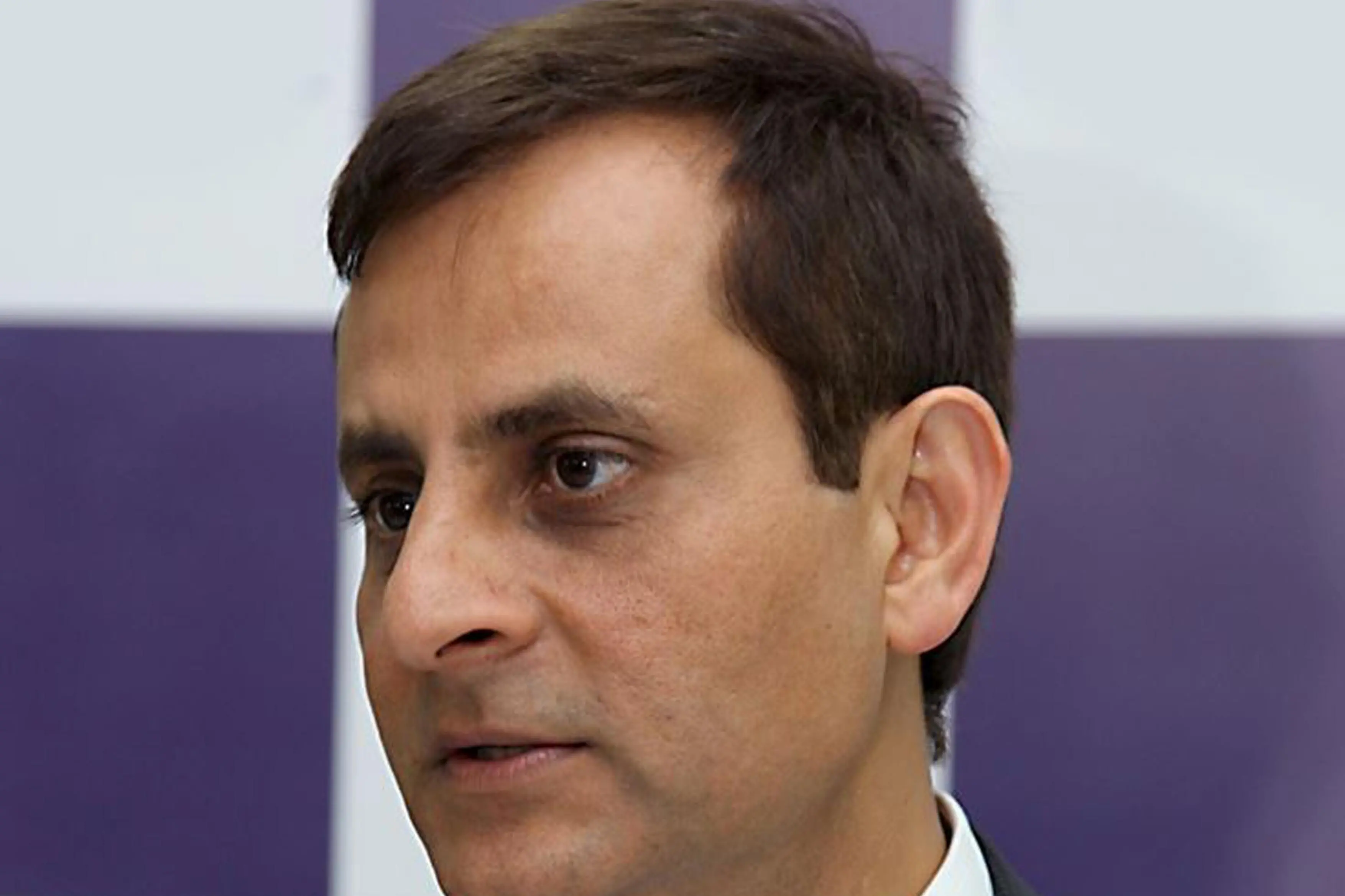PHOTO
Faced with soft demand and an oversupplied market, the UAE steel industry is hard pressed to reach its pre-pandemic numbers this year, the CEO of Conares, the country’s second largest steel manufacturer, told Zawya.
Bharat Bhatia said domestic demand is expected to be 15 percent higher in 2021 compared to last year, but pre-COVID numbers will remain a distant goal for the steel producers.
“Construction activities will be slower than usual in the last quarter, when the Expo gets underway, because we don’t want to showcase a city under construction.”
“On the projects front, Etihad Railway is on track, and new developments have been announced by Emaar, but these are not of the scale of a Burj Khalifa or a JBR [Jumeirah Beach Residence]. After six months, we may see a surge in those types of announcements.”
EXPORTS
The UAE’s steel exports has benefitted from a strong recovery in global steel demand since the last quarter of 2020. Steel prices worldwide have reached new highs due to rising demand stoked by COVID-19 stimulus packages in the US and European markets as well as by production curbs in China.
The UAE’s steel exports to the US for the first five months of 2021 grew by 9 percent to 110,862.3 metric tonnes compared to 101,558.5 metric tonnes for the same period last year, according the US Department of Commerce data.
He noted, however, that fourth quarter exports would depend on cash flow and how well the US and Europe control the pandemic.
“I am not very positive for the last quarter as we are seeing issues related to COVID, cashflow and logistics. Moreover, in the last quarter, banks [in these markets] are hesitant to provide funds till they see the balance sheet of 2021. If the year is closed well, we will see liquidity coming in the first quarter of 2022.”
KEEPING LIGHTS ON
Conares’ diversified product mix has helped the family-owned company keep its production lines humming despite a slow construction market.
“We are the only steel producer in UAE to have diversified across rebar, pipes and colour-coated coils. Those [non-rebar products] are now giving us business in the UAE market,” said company director Vivek Bhatia.
The company is also targeting niche projects where it can leverage its value-add facilities, such as galvanising for pipes and tubes.
Kush Bhatia, Director – Sales & Marketing at Conares, said, “We supplied galvanised hollow-section steel for the entire 400-km UAE–Oman border fence. We are also supplying fire pipes to NAFFCO.”
When travel curbs and lockdowns made visa processing and hiring of skilled staff difficult, the company invested in Level 2 automation to ensure that its JAFZA-based colour-coated steel facility started operations on schedule in December 2020.
“Last year, with many countries in lockdown, we used the time to our advantage to innovate our processes, cut down the turn-around time, and work on supply chains. That itself was a growth path for us,” said Kush.


Bharat Bhatia, CEO of Conares.
HEDGING RISKS
COVID-19 also provided additional impetus to the company’s plans to diversify, to better hedge its risks.
Bharat Bhatia said: “Prior to 2019, we were doing 65–70 percent [of our sales] in the UAE, and out of the remaining 30 percent, 15–18 percent was in the GCC, and the balance was exports. We are now targeting 40 percent in the UAE for all our products, 25 percent in the GCC and 35 percent outside the GCC.”
He added that the company is setting up an export-focussed 100,000-metric-tonne steel plant in mainland UAE with 100 percent ownership approval from Dubai FDI.
“Our mainland facility will start with pipes and tubes and is dedicated to the GCC and the Arab League countries, while our JAFZA plant will continue to cater to the UAE. We will be getting our first product from this facility in early August.”
The new mainland facility will increase Conares’ total production capacity to 1.1 million tonnes. “We have plans to add another 300,000 tonnes of product, which will be a fourth [business] vertical,” the CEO added.
Meanwhile, overall exports have increased by 25 percent with a focus on diversifying export geographies. Last year, the company partnered with Etihad Credit Export Insurance (ECI), the UAE’s export agency, to grow its exports by leveraging ECI’s global customer database.
“Over the past 4 to 5 years, we started exporting to South America, which was an untapped market,” Kush Bhatia said. “We are now exporting some tonnages to Africa. We are also exporting rebar to North America and the Far East.”
In June, Conares exported 75,000 metric tonnes of rebar to North America from its JAFZA plant.
The company’s low carbon-steel credentials, which includes sustainability certification from UK-based independent certification body CARES, have helped it crack the highly competitive European and North American markets.
Bharat Bhatia said, “We use recycled steel; our plants run on energy-efficient AC motors. These are technical things that are certified by UK CARES and allow us to be more competitive in the North American and European markets."
The company is currently finalising renewable energy and energy-saving projects that will support its de-carbonisation and sustainability goals.
NET EXPORTER OF STEEL
When domestic steel demand reaches pre-COVID levels, could cheap imports offer a challenge, like they did four years ago?
“The Ministry of Economy had supported the UAE steel industry and imposed 15 percent import tax on imports from outside the GCC. Recently, the GCC secretariat announced anti-dumping tariffs not only on rebar but on all steels at 16 percent plus in the first year, 15 percent plus in the second year and 14 percent plus in the third year,” he said.
The industry isn’t worried about imports from outside the GCC, he said. “What we are worried about is excess supply within the GCC. In the next few years, GCC could become a net exporter of steel.”
(Reporting by Anoop Menon: editing by Seban Scaria)
This article is provided for informational purposes only. The content does not provide tax, legal or investment advice or opinion regarding the suitability, value or profitability of any particular security, portfolio or investment strategy. Read our full disclaimer policy here.
© ZAWYA 2021





















